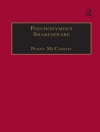In Pierre Corneille’s gripping tragedy, ‘Polyeucte, ‘ the playwright explores themes of faith, sacrifice, and the struggle between personal conviction and societal pressures. Set against the backdrop of Roman-occupied Armenia, the narrative follows the titular character, Polyeucte, who embraces martyrdom to express his unwavering belief in Christianity. Corneille’s use of elevated language and dramatic monologues enhances the emotional intensity, allowing readers to delve into the moral dilemmas faced by the characters. The play, emerging from the early 17th-century French classical tradition, challenges the conventions of heroic tragedy by intertwining personal agency with divine purpose, making it a pivotal work in the development of French drama. Pierre Corneille (1606-1684) stands as one of the foremost figures in French literature, often deemed the father of French tragedy. His innovative treatment of themes concerning honor, duty, and individualism reflects his own experiences in a time of political unrest and cultural upheaval. ‘Polyeucte, ‘ written in 1640, showcases Corneille’s philosophical engagement with ethical quandaries, which was influenced by his own Catholic faith and the tensions between religious fervor and reason during the Enlightenment. ‘Polyeucte’ deserves recognition for its profound exploration of spiritual courage and the human condition. Readers seeking a compelling blend of philosophical inquiry and dramatic narrative will find this play both challenging and rewarding. Corneille’s masterful construction of character and dialogue invites thoughtful reflection, making it a must-read for those interested in the evolution of tragedy and the exploration of faith’s complexities.
เกี่ยวกับผู้แต่ง
Pierre Corneille (1606–1684), often heralded as one of France’s greatest playwrights, had a significant role in sculpturing French classical tragedy with his renowned dramatic flair and poise. Hailing from Rouen in Normandy, Corneille initially embarked on a legal career before turning to the theater. His prolific literary oeuvre includes masterpieces that remain cornerstones of the French theatrical canon. Amongst his many contributions, ‘Polyeucte’ stands out as a testament to his genius. First staged in 1643, ‘Polyeucte’ delves into the intersecting themes of faith, sacrifice, and martyrdom, set against the backdrop of early Christian antiquity. Corneille’s exploration of the eponymous protagonist’s struggle with his newfound Christian faith and its ramifications on his personal and public life demonstrates his deft handling of complex characters and moral quandaries. His literature is characterized by the ‘Corneille hero’, typically marked by a stark rigidness in honor and duty. While some critiqued this trait as overly idealistic, it became emblematic of Corneille’s literary style and contribution to French tragedy and classicism. His work not only mirrored the evolving precepts of 17th-century French society but also played an integral part in shaping the aesthetic contours of French drama through his unique blend of eloquence, vigorous poetic dialogue, and moral gravity. Corneille’s ingenuity was a beacon that illuminated the paths for subsequent generations of dramatists, significantly influencing French literature and the classical tradition worldwide.












